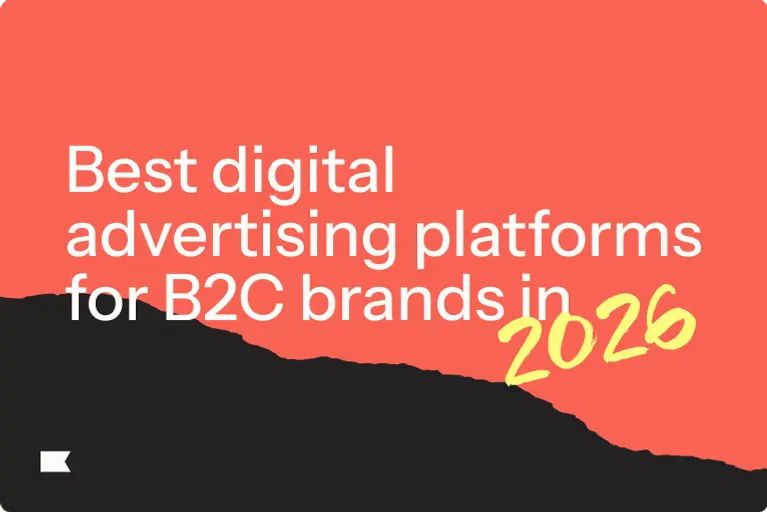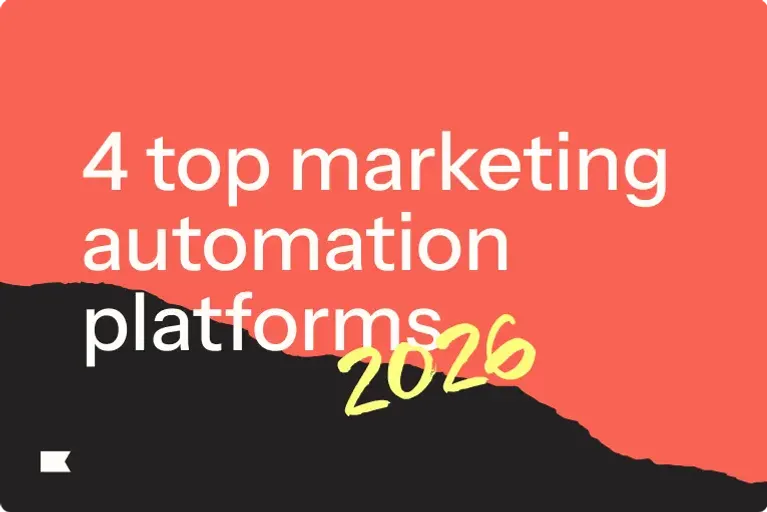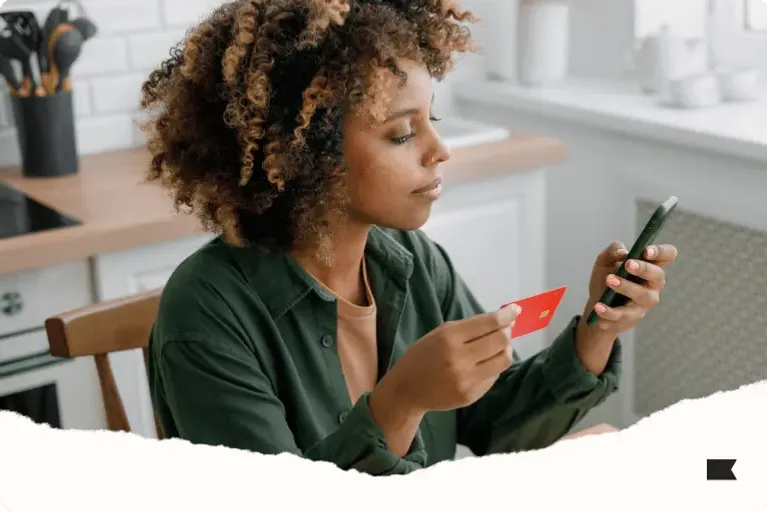Automations are the lowest-lift, longest-lasting lever in your owned marketing strategy.
Their value is two-fold: They are highly personalized based on each individual recipient’s behavior and they can perform at scale with almost no ongoing work. This is because each message is based on a specific action someone has taken like browsing one of your product sets, adding an item to a cart, abandoning the site, or making a purchase.
Research on buyer preferences supports personalization that isn’t creepy when done well. While online shoppers may get a little freaked out when an ad for the shoes they might want follows them on social media, OctaneAI reports that:
- More than 80% of consumers are willing to share data to create a more personalized experience.
- Nearly 65% of consumers are okay with businesses saving their purchase history and preferences in order to receive personalized experiences.
- 80% of consumers are more likely to buy from a brand that gives them personalized experiences.
Here we’ll highlight 3 success stories from Klaviyo customers who have taken use creative iterations of the following foundational marketing automations:
1. Loyalty flows contribute to 157.8% YoY growth in flows revenue for Callie’s Hot Little Biscuit
Handmade biscuit business Callie’s Hot Little Biscuit uses 20+ automations to boost order frequency.
On average, Callie’s customers made two purchases per year. But with the right incentives at the right time, the brand suspected people would buy more often.
To start, they set up two automations, both triggered by purchase behavior:
- A customer’s second order in a year triggers an alert that they’ll get V.I.B. (Very Important Biscuiteer) status with their next order.
- A customer’s third order triggers an alert that they’ll get free shipping on their next order.
After the loyalty flows launched in June 2023, they helped Callie’s Hot Little Biscuit grow revenue from flows 157.8% YoY.
“Today, we’re super in-depth in what we’re doing in our flows,” says Tarah Boyleston, marketing director. “We implemented an entire loyalty program through Klaviyo flows. It’s young, but it’s starting to convert, which is really great.”
More ways to trigger repeat purchases with flows
If you want to use flows to leak-proof your funnel like Callie’s, you’re not short on options. Here are a few of our favorite methods we’ve come across with other Klaviyo customers:
- Loyalty program offers that trigger after a certain amount of purchases
- Review requests that trigger after a product has been delivered
- Referral requests that trigger after a positive customer review
- Push notifications that trigger on birthdays, anniversaries, and other key milestones
- Personalized second purchase recommendations triggered a certain amount of time after a first purchase
2. Every Man Jack grows flows revenue 25% YoY with help from AI-powered flows
In 15 years, personal care brand Every Man Jack scaled to $100M+ in annual revenue with an owned ecommerce store and retail partners like Target and Whole Foods.
The brand had been sending a flow encouraging customers to reorder after 45 days without a purchase—even though their customers typically run out of their products after 75 days. Their previous automation platform didn’t let them customize the timeline in a way that made sense for their products.
With Klaviyo, Every Man Jack now has access to a solution: flows triggered by predictive analytics.
Predicted next order date, for example, informs an automated repurchase flow that goes out when Every Man Jack customers are most likely to be low on a favorite product. The flow sends a link to a cart pre-filled with their favorite product(s).
Flows like these helped Every Man Jack drive a 25% YoY increase in flows revenue.
Use flows to encourage repeat purchases based on predicted churn
One of the coolest ways to trigger an email flow is with predictive churn analytics. Platforms like Klaviyo use a variety of metrics and machine learning models to predict customer churn, which consider a customer’s average purchase value, average purchase frequency, and average lifespan with your business.
Based on churn prediction, you can separate high-risk customers from low-risk customers into specific audience segments. Then, when a customer dynamically enters your high-risk threshold, you can trigger an email that incentivizes a purchase.
3. Tatti Lashes generates six figure income from their welcome SMS
European beauty brand Tatti Lashes’ customers are more likely to use a mobile phone than desktop to browse, shop, and follow beauty and fashion trends. So it was only natural that the brand wanted to experiment with SMS flows.
Unlike many beauty brands, Tatti Lashes hardly ever discounts its product range—something their audience knows. So incentivising subscribers’ first purchase garnered a lot of attention.
The decision to only discount for “special occasions” earned Tatti Lashes 40K SMS subscribers in just 3 months. The SMS welcome flow for that impressive list drives a 30% click rate and converts at 9%.
These results were an early sign that the brand could afford to try more with SMS flows. They followed up on their success with:
- Abandoned cart, back-in-stock, and win-back flows
- Birthday-triggered flows with a personal message and an exclusive offer code
Now, Tatti Lashes generates 35% of their owned marketing revenue from SMS.
How to generate revenue with a welcome flow
If you’re not doing SMS marketing yet, there are a ton of experiments you can run to turn your welcome email series into a significant revenue generator.
Start with broad experimentation with 4 main types of welcome series emails:
- Educational: for novel products that are shaking up the market
- Offer: for brands like Tatti Lashes that don’t discount often
- Product benefits: for common products that need differentiation
- Information gathering: for audience discovery (a long-game strategy)
When you start to see success in any one area, you can start to fine-tune your flow for details that optimize for revenue.
If you don’t want to lead with a discount, that’s OK—your cost economics may not allow for it. But Christopher Maroney-Petitt, owner of Ecom Growers, recommends some experimentation with offers for “non-converters” further along in your welcome series, after you’ve already sent educational, tutorial-type emails.
“The best tactic I’ve implemented,” he says, “is an upgraded offer somewhere down in the welcome series flow. You do this if someone hasn’t converted already. That upgraded offer can be a better discount, free gift, giveaway entry, etc. If your other emails do a good job on educating, this upgrade will convert.”
Here’s what we’ve learned. Try it out with Klaviyo.
AI isn’t a magic bullet for more revenue, but it’s an important tool for enhancing your existing automations and giving you new ideas to test. Some of the latest advancements in marketing AI empower brands to:
- Save time on content creation: Large language models are generating personalized email content more quickly, so brands are editing for style and voice rather than writing copy from scratch.
- Automate segmentation: Segmentation requires a deep knowledge of your list, but that means you could miss valuable segments as your audience grows. With AI, marketers can describe their desired segment and create it in seconds.
- Increase content relevance: Predictive analytics and product recommendations help brands send timely and relevant messages that drive higher engagement and conversion rates.
Learn more about how Klaviyo AI can help you fine-tune your email flows for relevance.
Related content:
- What is marketing automation? 4 reasons it matters
- 9 examples of email marketing automations to set up right now
- Beyond the basics: 7 advanced marketing automation examples
- How to measure the success of your marketing automations
- How to set up a strong marketing automation foundation
Learn how 1.5K marketers are using AI at work.




